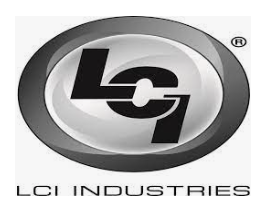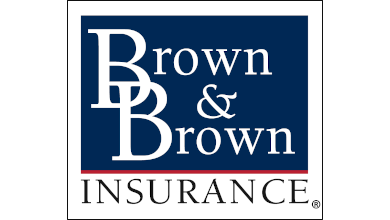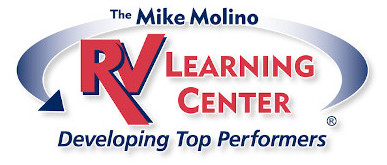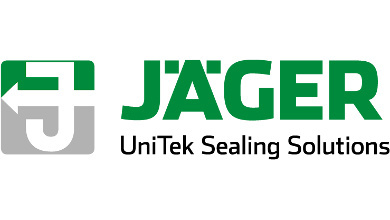Industry Professionals’ Predictions for 2025
11 members of RV PRO’s Editorial Advisory Board weigh in on what’s to come in the new year.

If we have learned anything since 2020, it’s probably to be flexible with what you have planned. In fact, the famous line “Want to make God laugh? Tell him your plans” has proven true time and time again. Nevertheless, in business, we do have to prepare ahead of time and make predictions about what’s in store so we can adapt quickly and adeptly.
RV PRO asked its Editorial Advisory Board members to tell us what they think is coming in 2025. Here are their answers — and we’d like to hear your thoughts, too — please email us! (Note: All answers were collected during November 2024.)
What do you predict for the RV industry in 2025?
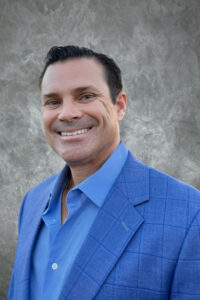
Travis Creech, Operations Manager, Rex & Sons RVs: The RV industry will likely be more tech savvy with diagnostic features and apps. Responsive to changing consumer preferences, including the continued rise of younger buyers and those embracing remote lifestyles.
Jeffrey C. Hunter, Chairman and CEO, Storyteller Overland: I have no crystal ball with a money-back guarantee, but I do believe that our industry, while continuing to deal with the lag-effect of major macroeconomic headwinds and crosswinds of recent years, will also see green shoots of goodness begin to reemerge in certain sectors of our business as manufacturers, retailers and customers all find their balance in this “return to normal” in our marketplace. The pain and gain of this “return to normal” will not be evenly distributed, as some manufacturers and dealers have not kept pace with the permanently elevated expectations and demands on the part of consumers for greater innovation, higher quality, consistency, total value and fully devoted customer care. Just because the volume expectations are returning to the mean does not mean customer expectations are ever going to return to being content with subpar quality. 2025 will likely represent a flight toward quality on the part of the customers that remain in the market and those who trend in during this sustained era of economic volatility.
Tom Kline, Lead Consultant and Founder, Better Vantage Point and Tuck The Octopus: A deeper and more clearly defined focus on expenses and corporate governance.
Trey Miller, Vice President of Marketing, Jayco Family of Companies: It has been very difficult to predict the industry over the past couple years, with so many macroeconomic factors having an effect on retail purchases, as well as dealer inventories impacting wholesale purchases. With all things considered, the consensus appears to be a thawing of the market in the spring of 2025 and an uptick in the summer. However, there are many factors that could impact that trajectory in either direction.
Tony Yerman, Fixed Ops Consultant, RV Learning Center: The forecast is for continued small improvements in wholesale shipments.
Susan Carpenter, President, RV’s Women Alliance; Manager of Aftermarket Operations, B&B Molders: I believe the first five months will still be soft as the industry waits to see what happens with not only interest rates but to see what the existing users’ demand for aftermarket products will be. The opening season, I feel, will open up and it will be a good summer.
Jennifer C. Johnson, Southeast Regional Manager, RV Park Management: The trend is now returning to what it was before the COVID-19 pandemic. RV consumers are gradually resuming normal activities, including purchasing property, building homes and renting or buying houses. Those that were remotely working are now returning to the office. With the new White House administration taking office, I anticipate that interest rates will decrease, inflation will stabilize and those currently struggling will become more financially stable. However, the campground industry is shifting toward long-term stays of six months or more, and the transient market is not performing as it once did.

Jesse Stopnitzky, Co-Owner, Performance Brokerage Services: As the aged inventory works its way through the retail market, new vehicle margins should increase steadily. Advertising expense should continue to decrease, as dealers are no longer competing so strongly to offload aged inventory. Floorplan interest expense will decrease as the federal reserve has already lowered interest rates, and as dealers are able to increase their vehicle churn from prior years. Fixed operations will remain stable with an increasing number of units in operation. F&I [finance and insurance] penetration should increase with lower interest rates, plus consumers will be another year accustomed to the current environment. There seems to already be an increase in consumer confidence, which will hopefully increase door swings and retail sales. Collectively, this should all result in higher profits for the average dealer.
Juan Tejeda, CEO, PPL Motor Homes: The RV industry should be optimistic about lower interest rates, lower inflation and an increased demand for leisure travel in 2025. Keep in mind, there are a lot of factors that can be positive for the RV industry and a lot of factors that can be headwinds. I love optimism and think it provides an advantage over being pessimistic; however, there needs to be a healthy paranoia in confronting today’s reality. Therefore, it would be wise to factor in a margin of safety in your strategic outlook for 2025. As a wise man once said, we can pray for good harvest, but we have to keep on plowing. That is exactly what we’re going to do in 2025: put in the work and brains it takes to be massively successful. Ultimately, we should expect moderate growth in the RV industry for 2025, which is a positive outlook for all stakeholders.
The RV industry is resilient, and we’re honored with the responsibility to make the RV industry better in all aspects, retaining customers, excellent products, world-class customer experience, healthy business, happy employees and consummate care for the entire RV industry. We are all vested in making the RV industry as healthy as possible in 2025 and beyond.
Randal Murray, Director of Orientation, Pete’s RV Dealer Group: After a number of years of craziness, I am seeing the industry starting to normalize to pre-COVID-19 era stability.
What’s a challenge the industry needs to focus on in 2025, and what do you think could be a solution?
Creech, Rex & Sons RV: For the sales side, manufacturers need to continue focusing on materials to fit into the economic price point sweet spot. Manufacturers will hopefully go back to the basics on training and educating the dealer body, not only in sales but also in service on the ever-changing policies and procedures in warranties processes, and service technical education on the newer products and components entering the RV space on products. The RV Technical Institute [RVTI] is great industry-wide; however, the manufacturers could improve on educating the dealers representing and servicing their brands and the components that are being installed on their models.

Hunter, Storyteller Overland: Our industry is still plagued by too many companies, SKUs, floorplans, feature sets, products that do not offer any real product or experience differentiation and do not adhere to any elevated standard for quality, consistency or service. Clever marketing cannot gloss over the industry’s ongoing self-inflicted battle against poor perceptions of quality.
Kline, Better Vantage Point: Risk and compliance continue to be challenging for dealers. How much insurance do they need? If something happens, will their insurance cover the peril? Satisfying customers should continue to be a focus as the regulatory environment gets more intricate. The Federal Trade Commission, as well as the state general attorneys, are more active than ever.
Miller, Jayco: There is always room to improve the customer experience for the RV owners. It requires all levels of the supply chain to continuously strive for improvements. Repair event cycle time (RECT) enhancement is one area that is widely discussed, but still needs additional attention. It is imperative to measure a company’s baseline performance, then track and report internally and externally on improvement (or lack of improvement). This will hold the companies accountable and assist in improving their processes.
Yerman, RV Learning Center: Continued investment in improving repair event cycle time (RECT) through education programs available through RV Learning Center fixed operations management training and tech training through RVTI.
Johnson, RV Park Management: The challenge will be to adapt to the changes in the industry. We will need to be creative to maintain momentum and make adjustments where necessary.
Stopnitzky, Performance Brokerage Services: With some dealers forcing the manufacturers to repurchase their inventory, 2024 units will hit the retail market at significant discounts. Closely monitor your inventory and continue to sell through aged inventory, including 2024 units.
Tejeda, PPL Motor Homes: The significant shortage of trained service technicians continues to be a challenge for the RV industry. Since 2019, the RV industry registered over 2.7 million new RVs in North America. The demand for trained service technicians remains high.

Industry responses to address the technician shortage require strong collaboration between RV manufacturers, dealers, suppliers, vocational schools and industry organizations to promote technician careers and recruit new technicians into the RV industry.
Establishing career paths, training and development programs are quintessential for sustained success in training new technicians. Partnering with flexible training programs to make training easier for employees is important. For example, RV Technical Institute includes multiple ways for RV technicians to get trained, such as: in-person, hybrid training, fully online training, training at an authorized learning partner and even supplier training on specific types of components. This flexibility offers a tremendous benefit for incoming trainees. Furthermore, the National RV Training Academy offers online training courses in RV maintenance and repair.
In closing, strong recruitment, established development programs and flexible training will help the RV industry recruit and train more service technicians.
Murray, Pete’s RV Dealer Group: The biggest challenge this year will be quality teammates. The current challenge is the cost and quality of today’s employee. Good attendance, aptitude and wanting to succeed are rare these days. I wish I had a solution. Maybe ad campaigns for the RV service industry and technical schools could be run during national sporting events. We need interest from young people that like to win. Athletes and people that watch sports are of that mentality typically. If you are not an RVer, you don’t know our industry, unfortunately; we need to change that. Maybe we could get involved with people leaving the military and offer them free technical training?
We as an industry also need to adapt to today’s employee and the way they learn. The old ways are not working as they once did. We need to adapt to the TikTok generation and the way they think.
Also, climate change laws affecting motorhome chassis and tow vehicles in the future should be discussed now.
What was 2024 like for your organization, and how are you feeling looking ahead to 2025?
Creech, Rex & Sons RV: We are going into 2025 feeling positive and optimistic!
Hunter, Storyteller Overland: 2024 was a transitional season from one type of growth to another for our business. Obviously, the broader macro-environment combined with the novel challenges expressed in our industry (a dramatic return to hypercyclicality and seasonality, over supply, high cost of capital and lending restrictions at the dealer/customer level combined with a meaningful retracement of consumer demand/sentiment, etc.) created fresh hurdles and challenges to overcome. But we used it as a season to double down on our innovation pipeline and new product development, as well as our commitment to strong, interconnected community and lifestyle engagement with our existing and trending customers. I believe we have planted good seed in good soil and made the appropriate adjustments to thrive into and through this next year, regardless of whatever “new new normal” presents itself.
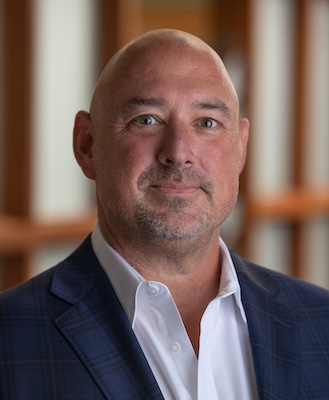
Miller, Jayco: 2024 was a very successful year for our company in terms of making ongoing advancements across the organization and growing share. The direction has been unwavering for many years in that we have three key areas we focus much of our attention: quality, customer relations and our people. These areas continue to be better and better year after year. It is not to say that we do not also pay attention to the other areas, we just never lose sight of the big three and 2025 will be no different.
Yerman, RV Learning Center: The RV Learning Center launched Warranty Administrator online training in 2024, and Service Manager training is coming in 2025.
Carpenter, RVWA and B&B Molders: 2024 has been a soft year but not one our company wasn’t expecting. Being in this industry long enough, you always know that an election year is always tough. Add high interest rates and overstocking of product, and it was as to be expected. Looking to 2025, I think we will have a good year in the aftermarket as people will continue to go out and camp and customer stocking levels lowered in 2024.
Stopnitzky, Performance Brokerage Services: The buy-sell market in 2024 was the slowest in recent years, specifically pertaining to volume of transactions and valuations. We are expecting a significant uptick in 2025 as profitability rebounds, interest rates decrease for business loans, and national and regional dealer groups resume their growth initiatives.
Paul Choquette, Vice President of Operations, Blue Ox: 2024 was a flat year; however, looking ahead at all of the new dealers we have onboard going into the new year and limited inventory levels at distribution and dealer level, we are optimistic 2025 could be a better year with any sort of industry-wide uptick.

Tejeda, PPL Motor Homes: Despite an 8% decrease in average sales price and a 15% decline in consolidated walk-in traffic compared to the previous year, PPL achieved a 5% increase in walk-in closing percentage and a 6% growth in total sales volume in 2024. Furthermore, the business office and service department are on track for a record-breaking year. By maintaining stringent expense controls, the company has improved earnings. Looking ahead, PPL is optimistic about its strategic initiatives and anticipates continued growth in 2025.
Murray, Pete’s RV Dealer Group: There will always be hips and valleys in our industry and will be as long as we have an industry. As mentioned, I feel we are seeing more normalcy ahead so proper levels can be set once again.
Is your company seeing any supply chain issues?
Hunter, Storyteller Overland: It’s always too soon to declare “mission accomplished” on supply chain-related issues, as there are any number of economic, geo-political, environmental or black swan types of issues that could disrupt the normal flow of critical components at any given point … but we are thankful that at present the “supply chain disruptions due to COVID-19” that plagued our industry for a number of years have all but entirely subsided.
Carpenter, RVWA and B&B Molders: We are lucky to manufacture our products right here in Mishawaka, Indiana, so even through COVID-19, we never had a problem supplying product.
Tejeda, PPL Motor Homes: No, PPL hasn’t experienced significant supply chain issues.
Murray, Pete’s RV Dealer Group: We are not; life is good here currently.
How can the industry do more to attract people to careers in the RV industry?
Creech, Rex & Sons RV: In advertisements, possibly on the Go RVing campaigns, along with advertising the lifestyle, mention how there are career opportunities in the RV industry.
Hunter, Storyteller Overland: Level up! So much of our industry has succeeded historically in spite of itself not because of itself. In order to present itself as a welcoming home and viable career path for the next wave of pioneers, technologists, craftsmen, industrial/product/experience designers, engineers, sales/marketing/creative/growth builders, etc., then it is going to have to admit that it has a heavy concentration of deficiencies that are begging for new ideas and fresh talent to translate them into reality.
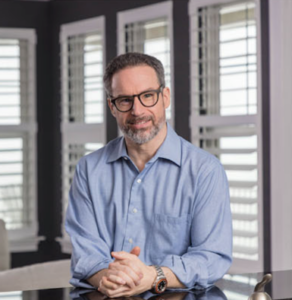
Kline, Better Vantage Point: Ongoing training. We need to do a better job of investing in our people.
Miller, Jayco: From a manufacturing perspective, we must work to retain those people who grew up in the northern Indiana area first and foremost. We do a good job in the blue-collar segment but fall short with white-collar positions. Many individuals from the region move away after college to find opportunities elsewhere, when there are amazing opportunities back at home. Companies need to be committed to expanded internship opportunities and work-study programs with a clear path to employment. There also need to be management trainee programs offered to cultivate internal talent verses looking outside the organization.
Yerman, RV Learning Center: Show employees and prospective employees a career path — however far they would like to advance. Lots of opportunities to work in the RV industry in a variety of roles.
Carpenter, RVWA and B&B Molders: Join RVWA! In all seriousness, education on the industry itself. Most people don’t even think about this industry when it comes to careers unless they were exposed to it somehow. We work hard at getting people out there using the product but nothing much goes into promoting the industry as a career path. Also, once they get into the industry, education on how the industry works. We are not a cookie-cutter industry. Being dropped in the middle of it can be very intimidating when you don’t know the fundamentals of it.
Tejeda, PPL Motor Homes: The RV industry can offer a rewarding career filled with opportunities for growth, competitive compensation, comprehensive benefits and positive work environments. Cultivating a positive workplace culture promotes respect, inclusiveness, collaboration and teamwork. It’s important to associate yourselves with good people, and workplace culture is important to hiring and retaining top talent. Furthermore, competitive compensation and comprehensive benefits are quintessential in retaining employees. Wellness programs and extended time off are benefits that promote a healthy work-life balance that can enhance employee satisfaction. Lastly, providing a clear pathway for career growth with a career development action plan can boost job satisfaction and company loyalty. I’m encouraged to see the diverse hiring of experienced professionals and college students who are willing to learn and grow in our incredible industry.
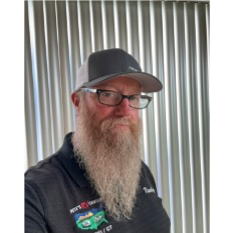
Murray, Pete’s RV Dealer Group: I keyed in on this above. We need to start talking about our industry and not the camping part, but the industry and career part. We need spokespeople [who] the young go-getter can relate with. We need to align ourselves with the military and high schools around the country. We need YouTube shows and competitions to drive an interest, maybe build offs like the old motorcycle heyday 20 years ago. We need to make our industry fun and important to people that don’t RV. We do have some of those people, but they are typically management from another industry, not frontline employees we desperately need.
Are there any regulations or legislation that the industry needs to keep its eye on?
Hunter, Storyteller Overland: I feel like the RVIA has established a healthy cadence of communication around the political and bureaucratic dynamics that are impacting our industry. Political rhetoric around an increased reliance on the weaponized use of tariffs as a key component of the arsenal in any future trade war could signal problematic supply chain or radical cost disruptions moving forward, but it is too soon to tell if that will materialize.
Kline, Better Vantage Point: None in particular and every regulation in general. If your dealership does not have a risk and compliance program, now is the time to start. As the state attorneys general continue to gain more clout, more power and more publicity, they will continue to flex their regulatory muscles, and dealers are their prime target.

Yerman, RV Learning Center: Regulatory burdens are increasing for dealers and manufacturers.
Carpenter, RVWA and B&B Molders: De minimis is a real threat as we continue to see importers come in and undercut our U.S. companies. The $800 threshold affects most of us in some way or another. It’s a race to the bottom and one we cannot win if this isn’t changed sooner than later.
Johnson, RV Park Management: Yes, keeping ourselves educated on the RV statutes and new laws coming, from the U.S. as a whole to state and local. Educating our local and state politicians, so many local authorities look at campgrounds in general as residential, which they are not. If we don’t keep up with the statutes and adjust them to meet and keep the RV industry standards, I see the future turning into residential affordable housing. If this should occur, it will change the feel of the RV adventure as we know it.
Stopnitzky, Performance Brokerage Services: The ACT [Advanced Clean Trucks] regulation will likely be an evolving matter worth paying attention to.
Choquette, Blue Ox: De minimis, in order to help protect aftermarket suppliers and also the safety of the products on the road.
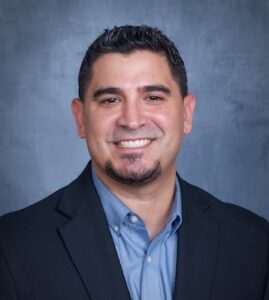
Tejeda, PPL Motor Homes: Yes, per RVIA, “the Advanced Clean Trucks (ACT) regulation was adopted by the California Air Resources Board (CARB) in 2021 to establish zero emission vehicle standards for medium and heavy-duty vehicles. As of November 2024, six states have adopted the ACT regulation: California, Oregon, Washington, Massachusetts, New York and New Jersey. In these states, the sale and registration of new motorhomes that do not meet the zero-emission requirements will be prohibited starting Jan. 1, 2025. The RV Industry Association (RVIA) has been actively engaged with CARB to seek exemptions or delays for motorhomes. As of now, there are no amendments been made to accommodate motorhome manufacturers.”
(Source: rvia.org/news-insights/californias-ban-motorhomes-what-you-need-know)
Murray, Pete’s RV Dealer Group: EVs don’t work well in the RV industry currently; they are very limiting whereas fossil fuels are not, due to quick recovery. I think no big decisions should be made until the new administration is in power and we see what they change or don’t change. Looking elsewhere as well, EVs are not the answer for moving freight or RVs currently.
Anything else you think our readers need to know heading into 2025?
Hunter, Storyteller Overland: It’s a great time to be in our industry. In spite of all the challenges, we are all still blessed to be in an industry that holds out the promises of helping peoples’ dreams come true by facilitating irreplaceable shared experiences and once-in-a-lifetime opportunities on a daily basis. Cheers to everyone who is doing all they can to hold true to our industry’s promise and potential by constantly elevating the experiences of those we are blessed to serve.

Miller, Jayco: I think it is always good to remember that the RV industry is a roller coaster that continuously has ups and downs. Speaking from a quarter century of being on this ride, it is what you do in the down years that make you successful in the up years. Then, in the good years, you need to be conservative and always be prepared to ride out a longer-than-expected dip in the market. Those who live too high on the hog when times are good and those who hibernate when times are bad typically experience the worst of it.
Yerman, RV Learning Center: Training and education continue to be a great way to be more efficient and retain good staff.
Carpenter, RVWA and B&B Molders: It will be a better year, just hang on until we get there.
Johnson, RV Park Management: Keep pushing the RV adventure!
Murray, Pete’s RV Dealer Group: Those who forgot how to sell will struggle. I feel like the business will be there and strong, but you will need to earn it once again — there are no more free rides.
